Related Research Articles

Murray Leinster was a pen name of William Fitzgerald Jenkins, an American writer of genre fiction, particularly of science fiction. He wrote and published more than 1,500 short stories and articles, 14 movie scripts, and hundreds of radio scripts and television plays.
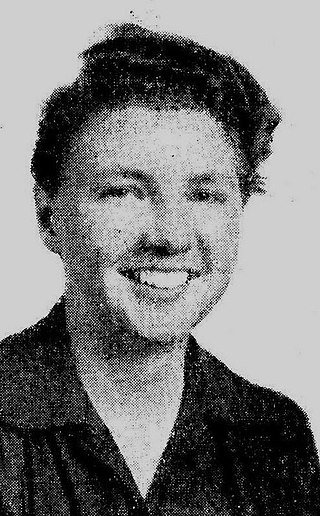
Leigh Douglass Brackett was an American science fiction writer known as "the Queen of Space Opera." She was also a screenwriter, known for The Big Sleep (1946), Rio Bravo (1959), and The Long Goodbye (1973). She also worked on an early draft of The Empire Strikes Back (1980), elements of which remained in the film; she died before it went into production. In 1956, her book The Long Tomorrow made her the first woman ever shortlisted for the Hugo Award for Best Novel, and, along with C. L. Moore, one of the first two women ever nominated for a Hugo Award. In 2020, she won a Retro Hugo for her novel The Nemesis From Terra, originally published as "Shadow Over Mars".

Between Planets is a juvenile science fiction novel by American writer Robert A. Heinlein, originally serialized in Blue Book magazine in 1951 as "Planets in Combat". It was published in hardcover that year by Scribner's as part of the Heinlein juveniles.

Methuselah's Children is a science fiction novel by American writer Robert A. Heinlein. Originally serialized in Astounding Science Fiction in the July, August, and September 1941 issues, it was expanded into a full-length novel in 1958. The novel is part of Heinlein's Future History series of stories. It introduces the Howard families, a fictional group of people who achieved long lifespans through selective breeding.
Arthur Bertram Chandler was an Anglo-Australian merchant marine officer, sailing the world in everything from tramp steamers to troop ships, but who later turned his hand to a second career as a prolific author of pulp science fiction. He also wrote under the pseudonyms of George Whitley, Andrew Dunstan and S.H.M. Many of his short stories draw on his extensive sailing background. In 1956, he emigrated to Australia and became an Australian citizen. By 1958 he was an officer on the Sydney-Hobart route. Chandler commanded various ships in the Australian and New Zealand merchant navies, including his service as the last master of the Australian aircraft carrier HMAS Melbourne; by law, the ship was required to have an officer on board while awaiting its towing to China to be broken up. Chandler wrote over 40 novels and 200 works of short fiction, winning the Australian Ditmar Awards for the short story "The Bitter Pill" and for three novels: False Fatherland, The Bitter Pill, and The Big Black Mark. One of Chandler's daughters, Jenny Chandler, married British horror fiction writer Ramsey Campbell. His other children were Penelope Anne Chandler and Christopher John Chandler.
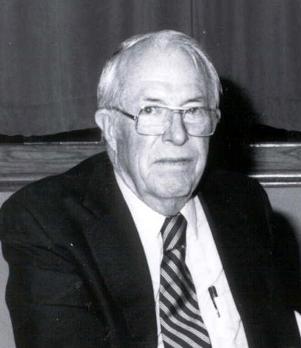
John Stewart Williamson, who wrote as Jack Williamson, was an American science fiction writer, often called the "Dean of Science Fiction". He is also credited with one of the first uses of the term genetic engineering. Early in his career he sometimes used the pseudonyms Will Stewart and Nils O. Sonderlund.
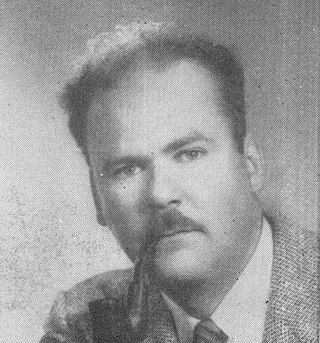
Dallas McCord "Mack" Reynolds was an American science fiction writer. His pen names included Dallas Ross, Mark Mallory, Clark Collins, Dallas Rose, Guy McCord, Maxine Reynolds, Bob Belmont, and Todd Harding. His work focused on socioeconomic speculation, usually expressed in thought-provoking explorations of utopian societies from a radical, sometime satiric perspective. He was a popular author from the 1950s to the 1970s, especially with readers of science fiction and fantasy magazines.

The Menagerie, Parts I and II, are the eleventh and twelfth episodes of the first season of the American science fiction television series, Star Trek. Written by series creator Gene Roddenberry and directed by Marc Daniels and Robert Butler, it is the only two-part story in the original series. Part I was broadcast by NBC on November 17, 1966, and Part II was broadcast on November 24, 1966. In the episode, Spock abducts his former commander Christopher Pike, locks the Enterprise on a course to the forbidden planet Talos IV and turns himself in for court-martial where he presents an elaborate story explaining his actions.

Lucky Starr and the Oceans of Venus is the third novel in the Lucky Starr series, six juvenile science fiction novels by Isaac Asimov that originally appeared under the pseudonym Paul French. The novel was first published by Doubleday & Company in 1954. Since 1972, reprints have included a foreword by Asimov explaining that advancing knowledge of conditions on Venus have rendered the novel's descriptions of that world inaccurate.

The planet Venus has been used as a setting in fiction since before the 19th century. Its impenetrable cloud cover gave science fiction writers free rein to speculate on conditions at its surface; the planet was often depicted as warmer than Earth but still habitable by humans. Depictions of Venus as a lush, verdant paradise, an oceanic planet, or fetid swampland, often inhabited by dinosaur-like beasts or other monsters, became common in early pulp science fiction, particularly between the 1930s and 1950s. Some other stories portrayed it as a desert, or invented more exotic settings. The absence of a common vision resulted in Venus not developing a coherent fictional mythology, in contrast to the image of Mars in fiction. When portrayed, the native sentient inhabitants, Venusians, were generally portrayed as gentle, ethereal and beautiful. Early science fiction writers who set their stories on Venus included Otis Adelbert Kline in the 1920s; Edgar Rice Burroughs, Olaf Stapledon, and Stanley G. Weinbaum in the 1930s; Robert A. Heinlein, Henry Kuttner, and C. S. Lewis in the 1940s; and Isaac Asimov and Frederik Pohl in the 1950s.

Neil Ronald Jones was an American writer who worked for the state of New York. Not prolific, and little remembered today, Jones was ground-breaking in science fiction. His first story, "The Death's Head Meteor", was published in Air Wonder Stories in 1930, possibly recording the first use of "astronaut" in fiction. He also pioneered cyborg and robotic characters, and is credited with inspiring the modern idea of cryonics. Most of his stories fit into a "future history" like that of Robert A. Heinlein or Cordwainer Smith, well before either of them used this convention in their fiction.
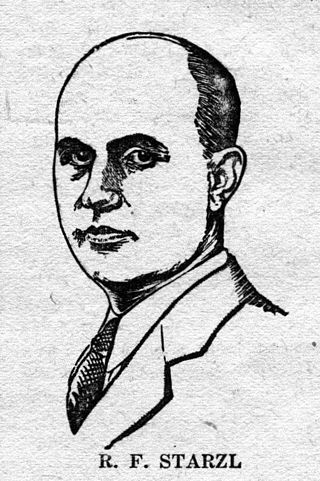
Roman Frederick Starzl (1899–1976) was an American writer. He, and earlier, his father, owned the Le Mars Globe-Post newspaper of Le Mars, Iowa. Roman Frederick was also the father of physician Thomas E. Starzl. His writing is largely forgotten now, but he was called a "master" by the pioneer of space opera E. E. Smith. Starzl's Interplanetary Flying Patrol, in The Hornets of Space, may have influenced Smith's Galactic Patrol. There is an extensive interview with Thomas Starzl about his father in Eric Leif Davin's Pioneers of Wonder.
"Parasite Planet" is a science fiction short story by American writer Stanley G. Weinbaum originally published in the February 1935 issue of Astounding Stories. It was Weinbaum's fourth published story, and the first to be set on Venus. He quickly followed it up with a sequel called "The Lotus Eaters".
"The Planet of Doubt" is a science fiction short story by American writer Stanley G. Weinbaum that was first published in the October 1935 issue of Astounding Stories. It is Weinbaum's third story featuring Hamilton Hammond and Patricia Burlingame, a sequel to "Parasite Planet" and "The Lotus Eaters".
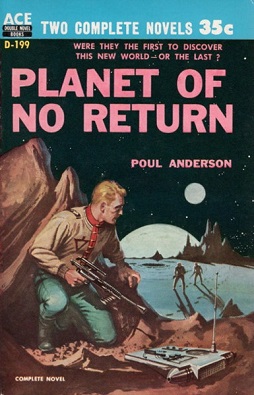
Question and Answer is a science fiction novel by American writer Poul Anderson. It originally appeared in the June and July 1954 issues of magazine Astounding Science Fiction, and was later reprinted in 1956 as part of Ace Double D-199 under the title Planet of No Return, and again as a stand-alone Ace novel in February 1978 under the original title.

Voyage to the Prehistoric Planet is a 1965 American science fiction film, one of two versions adapted for Roger Corman from the Soviet science fiction film Planeta Bur, scripted by Aleksandr Kazantsev and directed by Pavel Klushantsev. Curtis Harrington oversaw the editing and dubbing of principal portions of the source film, and directed new principal scenes featuring Basil Rathbone and Faith Domergue. The resulting new film was syndicated directly to television by American-International Television Inc.

The Psychotechnic League is a future history created by American science fiction writer Poul Anderson. The name "Psychotechnic League" was invented by Sandra Miesel during the early 1980s, to capitalize on Anderson's better-known Polesotechnic League future history. Anderson published 21 novels, novellas and short stories set in this future between 1949 and 1957, with a 22nd published in 1968.

Milcząca Gwiazda, literal English translation The Silent Star, is a 1960 East German/Polish color science fiction film based on the 1951 science fiction novel The Astronauts by Polish science fiction writer Stanisław Lem. It was directed by Kurt Maetzig, and stars Günther Simon, Julius Ongewe and Yoko Tani. The film was first released by Progress Film in East Germany, running 93 min. Variously dubbed and cut versions were also released in English under other titles: First Spaceship on Venus, Planet of the Dead, and Spaceship Venus Does Not Reply.
"And a Star to Steer Her By" is a science fiction short story by American writer G. Harry Stine, originally published, under the name Lee Correy, in the June 1953 issue of Astounding Science Fiction. It was later published in Every Boy's Book of Outer Space Stories. The title comes from a line in John Masefield's poem Sea-Fever.

Harl Vincent was the pen name of Harold Vincent Schoepflin, an American mechanical engineer and science fiction author. He was published regularly in science fiction pulp magazines.
References
- ↑ Astounding Science Fiction Magazine (listing), ISFDb, March 1943.